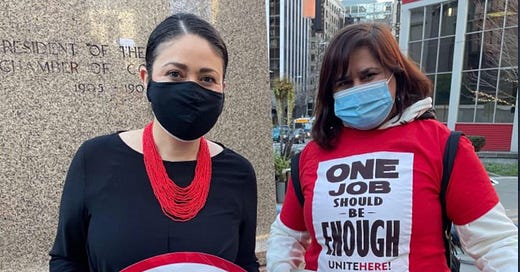Corporate cash largely absent in Seattle mayoral race
Contribution ban sponsored by González helps unions that support her; Plus other pre-primary campaign cash news
Four years ago at this time, an independent political committee1 somewhat mendaciously named People For Jenny Durkan was busily throwing money around ahead of the primary in an open race for mayor of Seattle.
There were very few actual people involved in People For Jenny Durkan2. The PAC got more than two-thirds of its money from the Civic Alliance for a …
Keep reading with a 7-day free trial
Subscribe to The Washington Observer to keep reading this post and get 7 days of free access to the full post archives.



